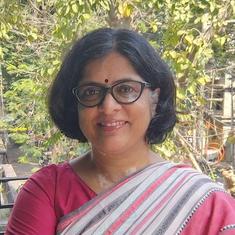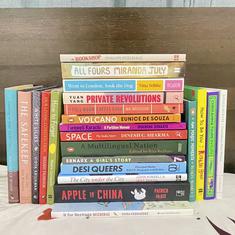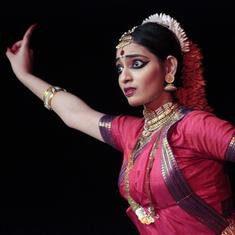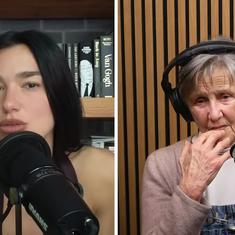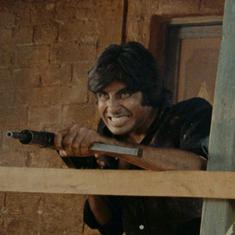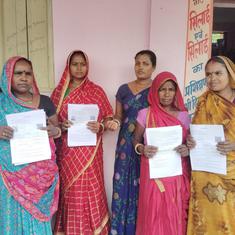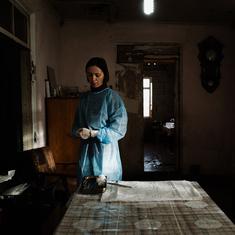Nandini Salokhe, gold medallist in the 53kg category at the National Wrestling Championships held in January this year is struggling for funds to meet her basic dietary needs as the second wave of the Covid-19 pandemic has hit the country hard.
The fate is similar for Swati Shinde, who trains with Salokhe in Maharashtra’s Murbud village, and had won a bronze medal at the same event.
Salokhe, by virtue of her gold medal at the nationals, has become the closest competitor in the weight category to Vinesh Phogat who is India’s representative at the Tokyo Olympics in the 53kg bracket.
But despite being a backup to Phogat for the Olympics, Salokhe has been left to fend for herself.
The 24-year-old, who is a rare champion from Maharashtra, was sponsored by Dorf-Ketal Chemicals India Private Limited for the last five years. The company used to provide a monthly stipend of Rs 10,000 to the girls along with taking care of all other dietary and training requirements. The company had also assigned the girls a strength and conditioning coach.
But the Covid-19 pandemic has brought their funding to a halt leaving the wrestlers short of a host of facilities needed to compete at the national and international level.
“A wrestler preparing for international competitions incurs an expenditure of Rs 40,000-50,000 per month. In the case of Nandini and Swati, the financial conditions of their families is such that they can’t sustain their careers without support,” Dada Lavate, the coach of the duo who trains the girls at the non-residential Sports Authority of India facility in the village, told Scroll.in.
Salokhe, who lost her father at the age of three, was raised by her mother who used to work as domestic help or sell vegetables to earn a living. In recent years, the family’s biggest source of income was the prize money Salokhe would receive at various tournaments. With the pandemic, even that has stopped.
“Buying supplements and all necessary stuff for her wrestling career is obviously hard but without local tournaments and competitions, it has become hard for the family to sustain basic livelihood. It’s a very demoralising thing for an athlete who has just become a national champion,” Lavate said.
The coach who trains other wrestlers in the locality revealed that many promising ones have quit the sport due to the expense involved and a lack of certainty for the future despite the likes of Salokhe and Shinde providing hope for the locals with their success.

Lavate revealed that there has also been a rise in the number of female wrestlers willing to have a crack at a career with the example of the duo in mind but there is still a lack of awareness about what it takes to have a successful career in the sport.
“We have tried to seek help from local authorities who have helped us in different capacities over the years but when it comes to funding, they don’t quite believe that so much expenditure has to go in for a wrestler to compete at the international level. There is no awareness locally,” Lavate said.
“In Haryana or Delhi, an international athlete has 5-6 people working on him but in Maharashtra and Kohlapur where we have such a rich history of wrestling, we don’t quite have that level of support,” he added.
Salokhe could also have been preparing for the Tokyo Olympics had she had a bit of luck. During the Olympic trials, Salokhe who was competing in the 50kg category she was leading Seema Bisla 5-2 in her bout when she suffered a dislocated elbow and had to concede the fight. Bisla went onto secure the Olympic quota in that category at the World Wrestling Olympic Qualifiers.
However, despite her promise, the Wrestling Federation of India hasn’t been able to aid struggling wrestlers. Lavate feels it’s wrestling’s greatest tragedy.
“For a national champion, there should be a certain level of help coming from the federation in such situations when wrestlers have to stay home. But in India, one only gets help when you win international medals and are a contender for the Olympics. One has to make the journey till that point on his own,” Lavate said.
The coach received phone calls from several NGOs who offered to fund the duo after the national championships but the second Covid wave meant none of the offers materialised.
The duo are still training under Lavate with an aim to succeed at the Commonwealth and Asian Games but with basic dietary needs not being met, there are restrictions on the preparation.
“When there are no competitions, it’s a time for the wrestlers to reflect, experiment and improve their level. We are training at the moment but without a proper diet, we are worried that high-level training might be damaging for her, so we have to keep it basic,” Lavate said.
“The international competitions haven’t stopped, they are continuing to get better so for us this is lost time. Both my pupils are very disciplined and dedicated but it has become difficult to keep them sound from a mental perspective,” he added.
Lavate has seen his pupils overcome great odds to reach where they are today and with the pandemic raging and little help in sight, he is forced to pin hopes on them doing it all over again.
